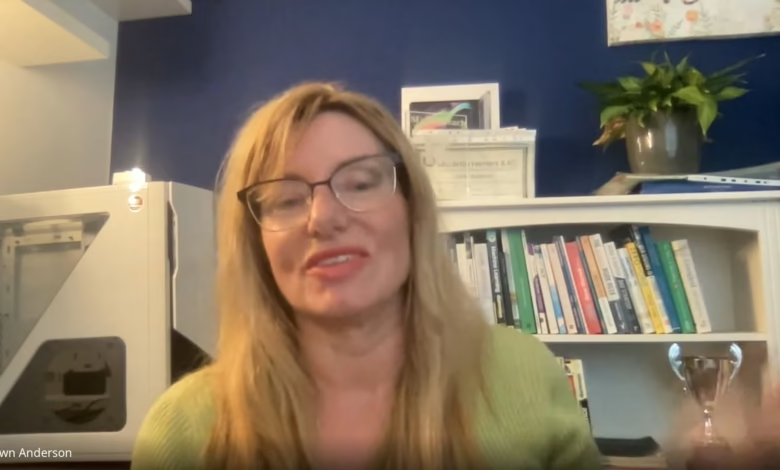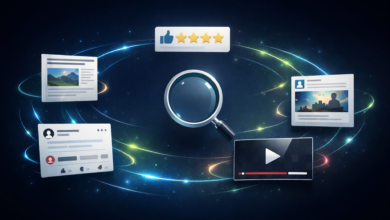Dawn Anderson: SEO AI, User Journeys & the Future of Search

▼ Summary
– Large language models (LLMs) are driving a major shift in search and information retrieval, moving toward generative models that provide answers directly.
– Dawn Anderson emphasizes the need for SEOs to focus on user journeys and omnichannel strategies rather than just rankings and traffic.
– The future of SEO may involve balancing generative AI with traffic-driving models to maintain value for content creators and publishers.
– Anderson sees opportunities in expanding search surfaces like video, imagery, and local business profiles, requiring more creative SEO strategies.
– The biggest challenge for SEOs is adapting to the paradigm shift in information retrieval while avoiding misinformation and deepening their understanding of AI and user needs.
The search landscape is undergoing its most significant transformation yet, with large language models reshaping how people find and interact with information. Dawn Anderson, Managing Director of Bertey and an 18-year SEO veteran, offers unique insights into navigating this shift while maintaining business value in an AI-driven era.
During a recent discussion, Anderson highlighted several critical areas where search professionals should focus their attention:
- Moving beyond traditional ranking metrics to understand holistic user journeys
- Adapting strategies for generative information retrieval systems
- Essential skills SEOs need to develop now
- Previewing her upcoming SMX Advanced session on weathering the AI storm
User journeys take center stage in the new search paradigm. Anderson emphasizes that successful marketers will treat organic search as one touchpoint within a broader omnichannel strategy. “People are becoming more inquisitive with AI tools in the mix,” she notes. “Understanding the complete research cycle – now longer than ever – separates effective strategies from outdated approaches.”
The conversation turned to how SEO demonstrates value as traditional metrics like rankings and traffic evolve. Anderson remains optimistic despite initial concerns about AI-generated answers replacing website visits. “There’s an unspoken agreement between creators and platforms,” she explains. “Without quality content, the entire ecosystem suffers from ‘catastrophic forgetting’ – where AI systems degrade without fresh, human-created inputs.”
When asked about exciting developments, Anderson points to expanding opportunities beyond ten blue links. “Search surfaces are diversifying – images, videos, merchant centers, local profiles. We’re just scratching the surface of creative ways to connect with audiences.” She references Google CEO Sundar Pichai’s comments about maintaining traffic to the open web as reassuring for content creators.
Tracking methodologies require reevaluation in this new environment. Anderson observes unusual ranking data where multiple sites appear in position one for the same query – likely reflecting AI Overview integrations. “Rank trackers remain useful guides, but we can’t rely on them as absolute truth anymore,” she cautions.
For professionals concerned about AI’s impact, Anderson advises focusing on foundational knowledge. “This is a RankBrain moment – lots of speculation and misinformation. We need to understand information retrieval principles rather than chasing quick fixes.” She warns against AI-generated thought leadership that lacks substantive understanding.
Looking ahead, Anderson sees SEO undergoing its most significant reinvention yet. “We’re moving from index-retrieve-rank to generative models – the biggest paradigm shift in information retrieval history.” She stresses that while the methods change, the core principle remains: “Agents emulate human behavior, so we must still deeply understand human needs.”
At SMX Advanced, Anderson will present six actionable steps for adapting to these changes. Her session will cover the historical context of this transformation, practical adaptation strategies, and insights about future developments. “This isn’t about fear – it’s about recognizing opportunities in this new landscape,” she summarizes.
The interview concludes with anticipation for the upcoming conference, marking the return to in-person events after several virtual years. Anderson’s session promises to deliver the forward-thinking perspectives she’s known for in the search community.
(Source: Search Engine Land)





